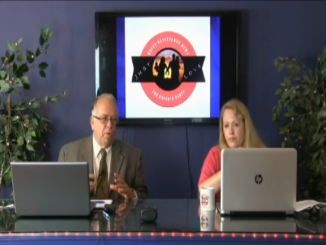
The Walt Disney Company — already in hot water with Florida’s Republican Party — may have also put itself in a precarious position with Republicans on Capitol Hill by taking a vocal stand against the Sunshine State’s recently passed Parental Rights in Education Bill.
In Florida, Republicans have threatened to revoke Disney’s special status as a quasi-self-governing entity by dissolving the Reedy Creek Improvement District, an effectively autonomous locality the state created so the company could establish Walt Disney World Resort. The threat came in response to Disney’s vocal opposition to the Parental Rights in Education bill.
Signed into law by Governor Ron DeSantis last month, the bill in question would prohibit classroom instruction on sexual orientation and gender identity from kindergarten through third grade. While Disney didn’t lobby against the bill as it was moving through the legislature, they spoke out publicly against it in response to demands from progressive activists and employees.
Disney’s copyright on its signature Steamboat Willie Mickey Mouse — from the 1928 short film of the same name — is set to expire on January 1, 2024, though later depictions of Mickey will remain protected by separate copyrights (e.g. Sorcerer Mickey, as depicted in 1940’s Fantasia). In the past, both the company and legislature have sprung into action to keep the depiction out of the public domain. This time, it might be more difficult to secure such an extension.
With a 1984 deadline looming, Gerald Ford signed the Copyright Act of 1976 in no small part thanks to the efforts of Disney’s lobbyists. That pushed Disney’s singular claim to Mickey out to 2003.
Always one step ahead, lobbyists for Disney secured a second extension in the form of the Copyright Term Extension Act of 1998. So influential was the House of Mouse in its passage, critics dubbed the bill the “Mickey Mouse Protection Act.” It passed through both chambers of Congress on voice votes.
There is little chance that a third extension will pass so smoothly, as several prominent Republicans, who will in all likelihood find themselves in the majority in both houses of Congress after the midterms, tell National Review that they would oppose such a measure.
Representative Jim Banks (R., Ind.), who chairs the Republican Study Committee, a prominent caucus with significant influence over GOP legislative efforts, is presently circulating a letter addressed to Disney’s CEO Bob Chapek expressing opposition to “further extensions applicable” to Disney’s copyrights
In the letter, Banks cites the company’s “kowtowing” to the People’s Republic of China, as well as its opposition to the Parental Rights in Education bill — which Banks argues represents a capitulation to “far-left activists through hypocritical, woke corporate actions” — as reasons for opposing another copyright extension.
“It’s unfortunate that Disney, once an American success story, has allied with a hostile foreign regime and domestic ideologues who seek to tear our country apart,” concludes Banks. While his office has not yet made public the rest of the signatories to the sentiment, there at first glance appears to be quite a bit of support for the idea.
Representative Jim Jordan (R., Ohio), a former chairman of the House Freedom Caucus and the ranking Republican on the Judiciary Committee — from which any copyright bill would emerge — concurred with Banks, telling National Review that “Disney used to be an inspiration for all American families, but it seems to now have given in to the woke mob.”
“It’s hard to believe that anyone would have considered extending the already lengthy term, but there’s no way they will get the ear of any Republicans after their radical political activism. America’s strong copyright protections helped make America great — they gave our creators and distributors the right incentives to produce content that shows the world the importance of freedom. But Congress should not add to Disney’s 90+ years of federal copyright protection to incentivize its new far left agenda,” continued Jordan.
Jordan and Banks’s opposition to an extension is by no means insignificant, but it was to be expected: The pair are known to be two of the fiercest conservative culture warriors in Congress.
A more telling sign of the changing political landscape is Florida senator Marco Rubio’s position on the matter. Although Rubio has inched away from his pro-business free market roots in recent years, one still might expect a GOP senator from the Sunshine State to fiercely defend Disney on this point. But Rubio declined to, observing instead that “Disney is in uncharted waters because of the radical activism of its corporate leadership.”
“It’s not clear how this whole thing plays for them, but they have made themselves the face of efforts to indoctrinate 5-year-old children on gender identity,” added Rubio in a statement given to National Review, one that might make it difficult for him to intercede on the company’s behalf in the Senate.
The expiration of Disney’s copyright on the Steamboat Willie Mickey Mouse would have immediate, practical consequences. Others would be able to use it for whatever purpose they like, including profit, without receiving or paying for permission from Disney. The company will, however, retain the exclusive rights to subsequent depictions of the character, lessening the financial blow in the present.
More weighty are the longer-term implications. If Disney doesn’t secure an extension now, all of the rest of its material will come under the same threat as the first Mickey, and it’s its proprietary material that makes Disney stand head-and-shoulders above its competitors.
It also speaks to the continuing evolution of the Republican Party, as it transitions toward a more cultural approach that subsumes its longstanding ties to corporate America to the social preferences of its base. This particular example could serve as a model in some ways for future GOP action, as it represents not punishment, per se, but the refusal to prioritize the interests of corporations above social priorities.
No one captured the spirit of this perspective quite like Banks, who told National Review that “Disney’s profits will give the woke left more control over our kids and conservatives in Congress should oppose any legislation that would unfairly advantage Disney.”
“What’s good for Disney is bad for American children,” finished Banks.
* story by The National Review


